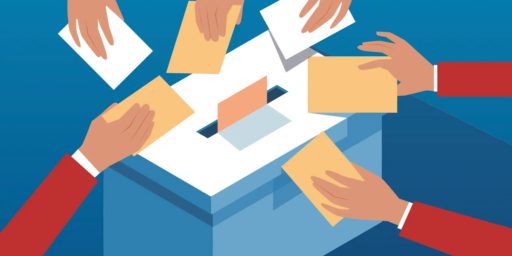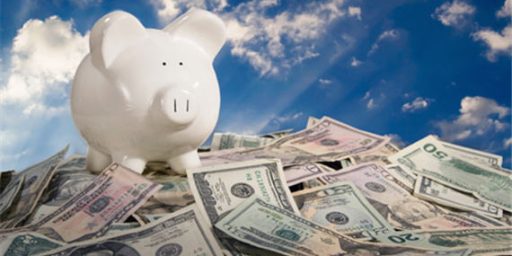Slippery Slippery Slope Arguments
I read this post by Greg Mankiw awhile ago and found part of it amusing. The part I found amusing was his use of Eugene Volokh’s argument against slippery slopes.
If you accepted this slippery slope argument, then you’d end up accepting the next one and then the next one until you eventually slip down the slope to rejecting all government power (or all change from the status quo), and thus “break down every useful institution of man.”
What I find amusing is that the Volokh quote that Mankiw selected resorts to a slippery slope argument to argue against slippery slope arguments. And what is more, we have plenty of examples of where there is a slippery slope when it comes to government power and its aquisition of more and more power along any given “gradient”. Anyone want a nice cup of Kelo? Many of the blawgs I read about Kelo basically had responses like, “What is the big deal, this is the way eminent domain law has been moving for the last several decades.” How about Radley Balko’s work with SWAT units. Initially they were created to deal with extreme emergencies such as a crazed sniper on a building, a multiple hostage situation with multiple bad guys, terrorists, etc. Now, they SWAT teams are used to routinely serve drug warrants on non-violent offenders and the difference between knock-and-announce and no-knock is virtually nothing. Another example is intellectual property laws. When you look at these laws over time they have grown to cover more and more things.
I think Prof. Mankiw also makes a mistake when he rights,
Ultimately, policy is set by the median voter. When smart economists like David Friedman reject the first-best moderate policy to advocate the do-nothing position, he loses credibility among moderates, and that makes it easier for climate-change extremists to convince the median voter that we need to do something extreme.
Sure, in a perfect world, rejecting the “moderate first best policies” is not very smart. However, we don’t live in a perfect world, we live in the real world and “moderate first best policies” are about as common as perfectly competitive markets. And, it isn’t clear that the median voter decides these policies. There are some problems with the median voter theorem. First off, it the givens for the theorem is that the decision has only a single dimension. Most elections in this country are multi-dimensional and cover such topics as taxes, health care, gay marriage, abortion, foreign policy, gun ownership, education, civil rights and so forth. Second, it isn’t clear that the median voter always has to decide the outcome. The Median voter decides the outcome if and only if the distribution of policy preferences is single peaked (think of a bell curve here). If there is more than one peak, or no peak at all, then it isn’t clear that the median voter will be the deciding voter. And last but not least, there is nothing in the median voter theorem that argues the median voter’s policy preference is the optimal policy. In fact, this can only be asserted if and only if the distribution of policy preferences is symmetrical about the median.
Now all that being said, I still think that Prof. Mankiw’s notion of a gasoline tax is a good one. His list of reasons for such a tax can be found here and while each one by itself may not be persuasive taken as a whole it is a pretty good argument. Do I think it will be put into effect? No. Why? Because while all the reasons for such a tax are good one’s the idea of raising taxes is very unpopular, especially on a commodity that has already seen its price go up substantial over the past few years.





I would settle for the end of all government subsidies to the oil industry so the market could actually have a chance do it’s magic. but I guess that’s asking too much…. [grin]
As for the slippery slope argument, sometimes it happens and sometimes it doesn’t. I seen it happen to many time not to take it seriously especially with the government.
As for the gasoline tax, I think it is a bad idea. We are already tax anywhere from 26 to 51 cents per gallon and that is just the direct taxes. Even if man made global warming exists, a dollar tax increase wouldn’t decrease it substantially if at all. Not that anyone has proven global warming would have a overall negative affect, lots of Hollywood scary predictions though.
It would harm the economic growth of the U.S. We would spend more money of fuel and less on most everything else. Speaking percentage wise since inflation would increase the cost of everything. The rest of the world like China would benefit since fuel would in short run decrease. Once their economy increase from cheaper energy, their consumption will increase therefore increasing oil prices again. Oil is a world market.
We could pull all of our troops and resources and put them in the U.S. and we wouldn’t be any safer. Just the opposite would happen. The radicals in ME would still want to kill us and the rest of the world would try to figure a way to take advantage of us and others. That is the nature of world competition. War overseas would most likely increase.
Greg’s points sound real nice but are full of holes. However, this post has gone on to long and beside I need to get back to being productive.